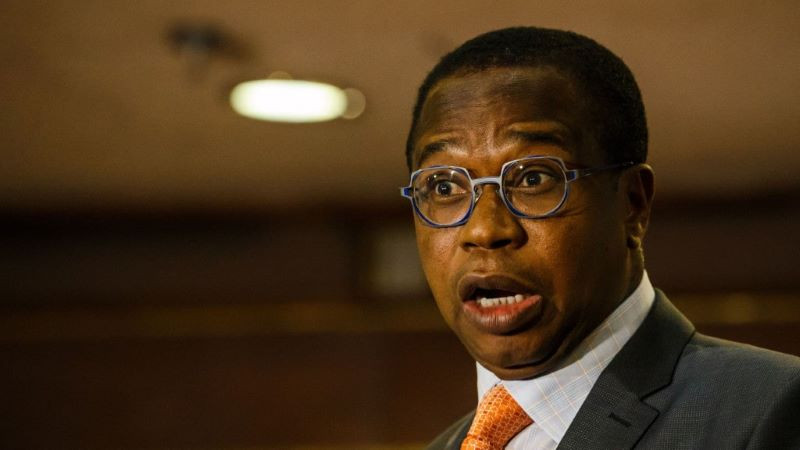
MARKET watchers say Finance minister Mthuli Ncube, who this week hinted on further currency reforms, was clutching at straws as the country’s currency continues to depreciate.
The impending reforms will see the exchange rate linked to a hard asset as part of measures to strengthen the local currency.
Responding to questions during a press conference ahead of the United Nations Economic Commission for Africa conference of ministers to be held in Victoria Falls later this month, Ncube said currency reforms were crucial at this stage.
This is not the first time Zimbabwe has been making efforts to stabilise the currency to respond to a runaway exchange, which is a big threat to economic recovery.
The Zimbabwe dollar has depreciated by about 40% since the beginning of the year, after being undermined by weak commodity prices that have dented inflows.
The sharp depreciation has seen President Emmerson Mnangagwa hinting last week that a structured currency reform programme was on the cards.
But economic analyst Chenayimoyo Mutambasere expressed doubt if the strategy will work.
“This is exactly the same concept the government has already tried with the gold-backed digital coins and the gold coins,” Mutambasere said.
- Budget dampens workers’ hopes
- Govt issues $24 billion Covid-19 guarantees
- Letter to my People:They have no answers for Nero’s charisma
- ZMX to enhance farm profitability
Keep Reading
“What it has done is to sell gold at a discounted rate as they use the government pegged interchange auction rate rather than the market rate. Furthermore, this process has lacked transparency and most of us believe it has contributed to the various ways that gold is being smuggled out of our country.”
She said the minister was clutching at straws adding that the leakages were hurting the economy.
“For years, we have called for a single currency and the abandonment of the interchange auction, but they have continued to refuse to implement for reasons best known to them,” she said
Economist Vince Musewe was concerned that while currency problems have been affecting the country for many years, efforts to stabilise the Zimbabwe dollar have not been sustainable.
“We have had the currency problem for years and whatever solution we come up with to stabilise the currency is not sustainable because sooner or later things start happening again, which means we are looking at the wrong thing,” Musewe said.
“The fundamental issue about Zimbabwe is building confidence and building that confidence includes economic and political stability, and dealing with corruption. These are the things that build confidence.
“Otherwise, we will be back here again six months on, saying we want to stabilise because the currency reacts to what is happening.”
Musewe said as long as the country did not address the root causes of the currency crisis, instability will continue.
Financial analyst Ranga Makwata said achieving stability for the local unit required addressing several crucial factors, including responsible fiscal and monetary policies, political stability and structural economic reforms.
“Beyond these, public confidence plays a vital role. For a currency to stay stable, the public must trust it as a reliable medium of exchange, a store of value, and a unit of measurement for transactions,” he said.
“Unfortunately, the Zimbabwe dollar has fallen short in recent years, eroding trust in the market, and people now prefer more stable currencies.”
Prosper Chitambara, another economist, said: “This (proposed currency reforms) is akin to what we had in the past, the gold standard where you link money supply to gold. That actually helps to control money supply, and it also helps to stabilise the value of the currency, because ultimately, it means the value of the currency will be determined to a greater extent by the value of gold.
“If there are volatilities in terms of the value of gold, obviously that also translates into volatilities in terms of your currency. But on paper, it sounds a good idea to link your currency to an underlying asset such as gold. And, of course, we have seen that the value of gold tends to increase over time. I think it makes some economic sense to do because it also helps you to control the levels of money supply.”
He added that the strategy would become a self-disciplining mechanism for the central bank and government.
Chitambara said in the medium to long-term, the country needed to ensure fiscal sustainability through ensuring fiscal discipline, consolidation and restructuring public spending with a view of eliminating wastages and non-productive spending, as well as ensuring monetary discipline through controlling money supply growth.
The country also needed institutional reforms to address issues of wastages, inefficiencies in parastatals and other public entities, he said.







